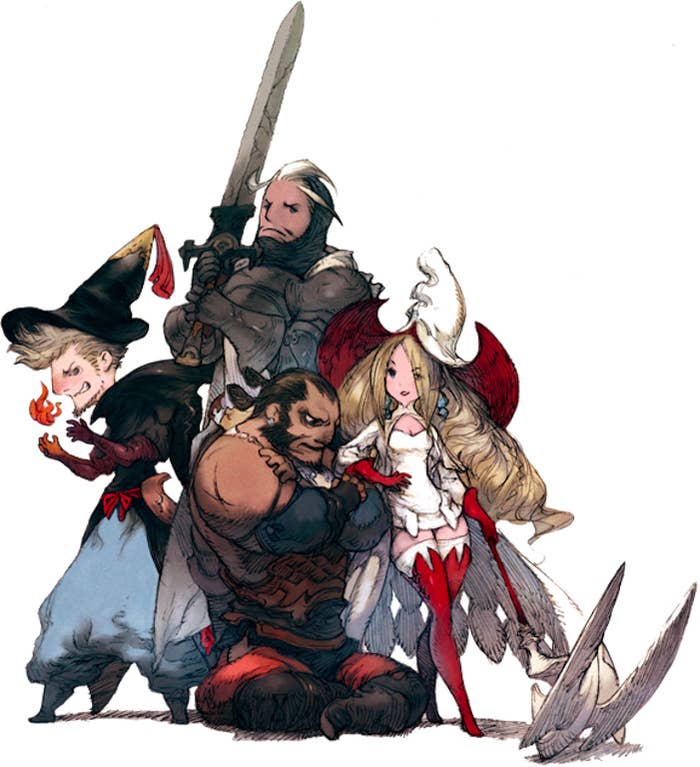
Today, I am a modern, fully functional, city-dwelling adult. I write about food for a living, I own a comfortable sofa, I belong to a book club, and I spend too much money on alcohol. I live in Brooklyn.
It wasn't always a given that things would turn out this way. That's because, between the ages of 11 and 18, I was driven by a singular passion, one that people don't tend to associate with well-socialized teen girls: I spent hours and hours and hours of my life parked in front of a PlayStation, and then a PlayStation 2, immersed in various Japanese role-playing games. Final Fantasies; Chrono Chross; XenoSaga; Star Ocean, Shadow Hearts.
The works.
Understand: I was not the kind of gamer who would play for a casual hour on a Saturday and then wander off to do something normal. I was the kind of gamer who — barring outside intervention — would play until I was overcome with nauseous despair. The kind of gamer whose parents instituted weekly time limits so that my legs didn't fuse to the sofa. The kind of gamer who would play a game once, consult the internet to make sure that I'd rummaged through every corner and finished every sidequest, and then play the game a second (or third) time in order to write a psychotically granular game guide to upload to GameFAQs.com, a website of which I was a committed and highly active community member.
(An excerpt from this, my magnum opus: "This is not (yet, and probably not ever) going to be big on specific strategies for beating bosses, etc. Those you can find in the excellent general walkthroughs written by other people, probably ones with more time on their hands than I have.") [Ed.: "more" time, lol.]
Once, in the crazed throes of a Final Fantasy X playthrough, I decided to type up checklists of every single monster I had to track down and beat, every item I had to find, and every super-powered weapon I had to trick out.
Reader, I printed out those lists and made a three-ring binder.
As with most of the questionable decisions I've made in my life, my journey into binder-compiling obsession began when I saw people cooler than me doing something, and wanted in. It was the fall of 1999. I was an 11-year-old in Harry Potter glasses, starting sixth grade and emerging from a period of dressing almost exclusively in head-to-toe polar fleece leisure suits. My older brother and his friend Hunter (who wore a bowl cut with real grace and upon whom I had a non-actionable crush) started meeting at our house after school to hang out and, often, play the newly released Final Fantasy VIII. And I was jealous.
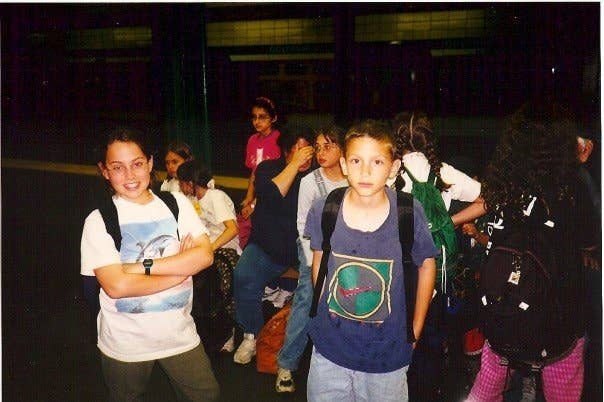
I'd always liked watching my brother play video games, but most of them were too boring or too violent or too inherently dopey (bless you, Crash Bandicoot) to compel me to pick up a controller. This game, though, was a window onto a big, fantastic world populated by characters who seemed to have real motives and relationships, brought to life in legitimately beautiful ways. It was rich and cinematic and surprisingly adult, and my perfectionist brain was drawn to the game's measured pace and strategic framework. One of my limitations as a human is that I only like doing things I'm good at. And this was the kind of game, I realized, that I could be very good at.
I was, for years. I played Final Fantasy VIII until I practically had the whole thing memorized and pounced on each new installment in the series. My hobby, though, was private. It wasn't really something I talked about with anyone besides my brother and a handful of strangers on the internet. Eventually, I went to college, where I no longer had the option of segregating at-home geekdom from public conformity. I decided pretty quickly that explaining an RPG habit to potential friends was a lot more mortifying than playing the games was, at that point, actually fun. Something changed.
It's too pat to say that I loved JRPGs because they filled some chasm of teen loneliness or self-doubt. I was never a sad kid. I had friends I liked and a family I loved; I was proud of my grades; I played a mean clarinet solo. But I think I was always a little bit bored. And from the moment I got to college, I became, overnight, the opposite. That shit was four years of straight-up brochure-material personal growth. How could I justify spending an hour leveling up to beat a boss when I had a Nabokov novel to read before tomorrow's section, where I would be expected to dazzle real human beings with my piercing insight? Why would I spend the night alone with my TV when there were cute boys in the hallway to sit next to while they played guitar badly? I was BLOSSOMING, man. I felt like I was finally playing the hero in the real game, and I didn't need the pretend version anymore.
For the most part, that was that. I liked keeping my gamer past in my pocket as a kind of nerd cred card to flash when the occasion demanded it, and I'd wax nostalgic periodically. One summer when I was home from college I even fished my old PS2 out of the basement and rehabbed its wonky laser so I could revisit a few old favorites. But for about eight years now, I haven't so much as picked up a console controller.
Until, that is, I was asked to play a new JPRG on a professional basis. Almost a decade later, It turns out that the closeted RPG geek I was throughout my adolescence is still glued to a tiny screen somewhere inside me — and she couldn't turn down an offer like that. I wasn't sure if I'd outgrown those games forever, or if the fascination would start to bubble up again, and I wanted to find out.
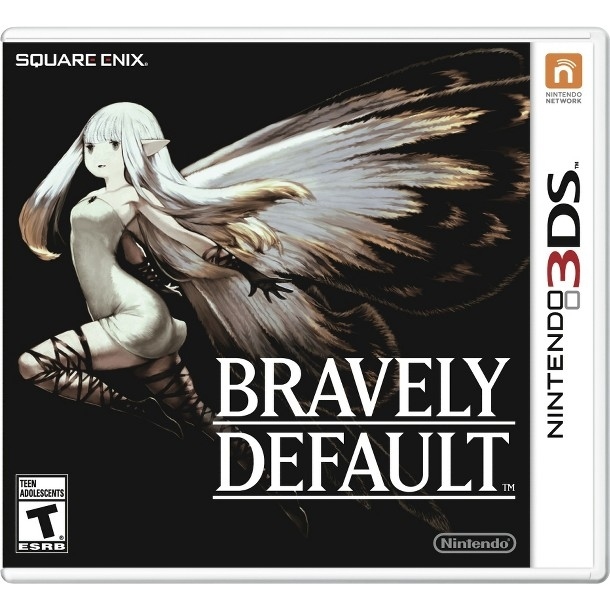
If you asked me to guess what something called "Bravely Default" was, I'd say it was a film involving a determined young woman, played with grit and charm by Jennifer Lawrence, who manages through sacrifice and pluck to save her mother's house from a corporate banking entity. As it turns out it refers to the battle system of the newest game from Square-Enix (the RPG-producing factory of my youth). In it, you can "default" (pass) on a turn to build up "brave points" and execute more and/or cooler moves later on.
It's unclear who thought this would make for compelling branding. Back in my day, they stuck with nice plain Roman numerals.
In order to fulfill my mission I first had to get used to the Nintendo 3DS, which I'd never picked up before. It's a nifty little system, but it's not nearly as immersive a platform as a console hooked up to a TV screen. The console's job as a piece of machinery is to pretend it doesn't exist. An RPG on a glorified flip phone, it, instead of feeling like a virtual otherworld or a movie in which you have the privilege of playing a character, just feels like what it is: a game.
I also have to admit that I am a superficial creature who loved '90s RPGs in large part because they tended to be pretty, and it's hard not to notice that the scope and power of graphics on the 3DS are fairly limited. The environment and character designs in Bravely Default are appealing — colorful and detailed — but the cutscenes are choppy, boring, and cramped. Swanky, fully rendered CGI movies aren't really part of the deal, and I miss them; those were always the juicy payoff after hours of repetitive gameplay.
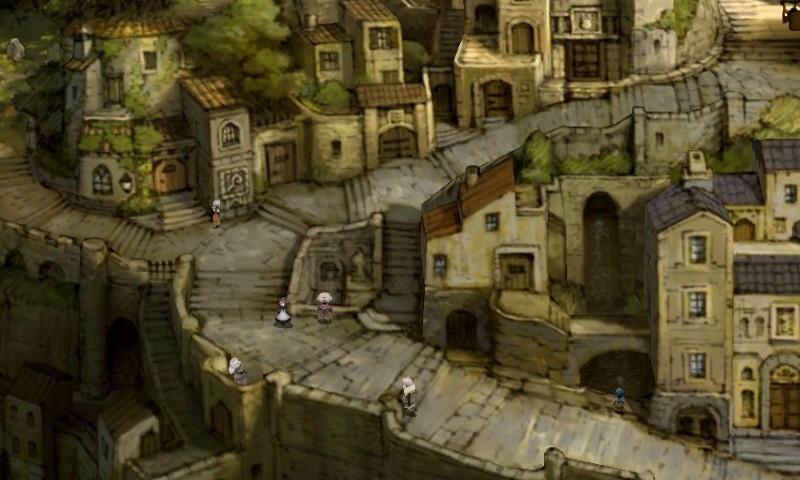
Another initial barrier to entry was that, as a human who started playing video games in a prior millennium, the online connectivity elements of Bravely Default make me feel confused and old. It's always suggesting that I might want to "update data" and "summon friends" to help me out in battles. The basic assumption that a single other human I know would ever spend time playing this game is charming, but incorrect. And it made me realize that something I liked about RPGs was that they were inherently solitary and self-contained. I didn't have to coordinate or compete with other people; I wasn't trying to be faster or better or sneakier than anyone else. In those games, unlike in real life, I had the luxury of depending on no one but myself.
Once I actually did start playing Bravely Default, I had plenty of other complaints. The plot of the game is deeply generic: An orphaned, virtuous ragamuffin joins forces with a beautiful young priestess and a small band of other sympathetic individuals to save the world from an approaching catastrophe (something to do with crystals). Those tropes are pretty recognizable from every other Final Fantasy game I've played, plus or minus a few details, but usually the supporting cast, the settings, and the specific turns of the plot help make each game feel like a more fully realized world.
In Bravely Default, that stuff is all pretty flimsy. You essentially just complete the same quest several times (redeem another corrupted city; rekindle another magic crystal) with slight variations and occasional detours. The dialogue is generally inane. And, as a kicker, a recognizable kind of casual, winky sexism (in the name of fan service) is very much present, from a plotline devoted to a scandalously skimpy bikini to a creepy sidequest in which a dude drugging women and locking them up in his basement is played for laughs.
All that said, I know this game wasn't designed to change the world. It was designed to be fun to play, and it is. Bravely is built around the same satisfying gameplay elements that got me hooked on Final Fantasy in the first place: a big world map to travel through, quirky towns and puzzle-filled dungeons to explore, and the familiar, incremental treadmill of character-building rewards. I could sit on the couch for three hours playing Bravely while I watched Olympic ice dancing and feel as if I had accomplished something. But of course that always was, and still is, the small tragedy of video games. Your accomplishments only exist while you're plugged in.
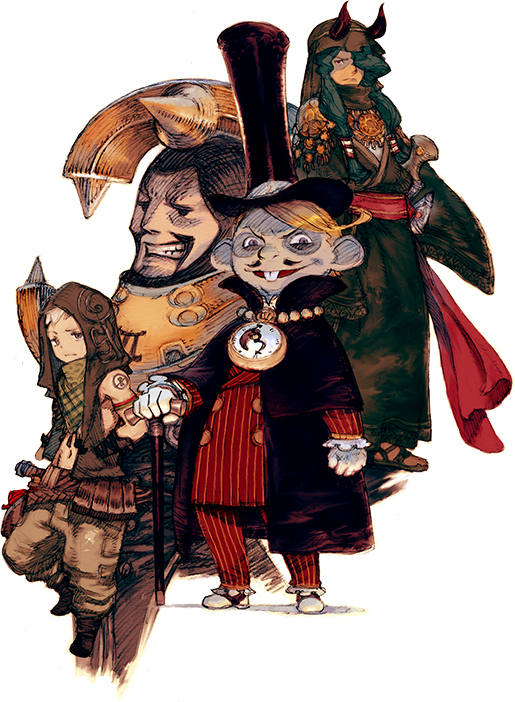
My roommate was visibly puzzled the first time I whipped out the DS during a commercial break ("It's...for work?") but, after that, unperturbed by my new leisure activity. Some were less understanding. I recently ran into an old boss on the flight back from a vacation; every time said former boss walked past me to go to the bathroom he would stop to make a joke about Cheeto dust or finger injuries. It turns out that a dark nerd past is significantly easier to fit into your life than a dark nerd present.
Concerns over damage to my personal brand aside, after two weeks playing Bravely in my spare time I'm still just over 20 hours in, and less than halfway done with the game. It's unclear to me how any reasonably busy person with a full-time job would have the time to finish it in less than a month. And for that matter, how did I ever have the time? At one point I started trying to estimate how many hours of gameplay I'd racked up in my youth (at least many hundreds, probably into the thousands) and then realized that I absolutely never want to know the real number, because then I'd know how many foreign languages I could have attained fluency in instead.
Bravely Default doesn't really scratch the same itch as the RPGs I used to love, but I don't know that anything could. I don't think I have that itch anymore. I have a job that challenges me. I have good books and fancy cocktails and television shows that keep me entertained. I live in a city that's full of astonishing beauty and irredeemable villains, in roughly equal measure. But playing the game has certainly made me feel a real nostalgia, not exactly for those old games themselves, but for how fiercely absorbed in them I was. I'm not sorry to be living a complicated, fascinating, grown-up life that I find more interesting than any all-consuming role-playing game. It's just that sometimes I miss saving the world.
